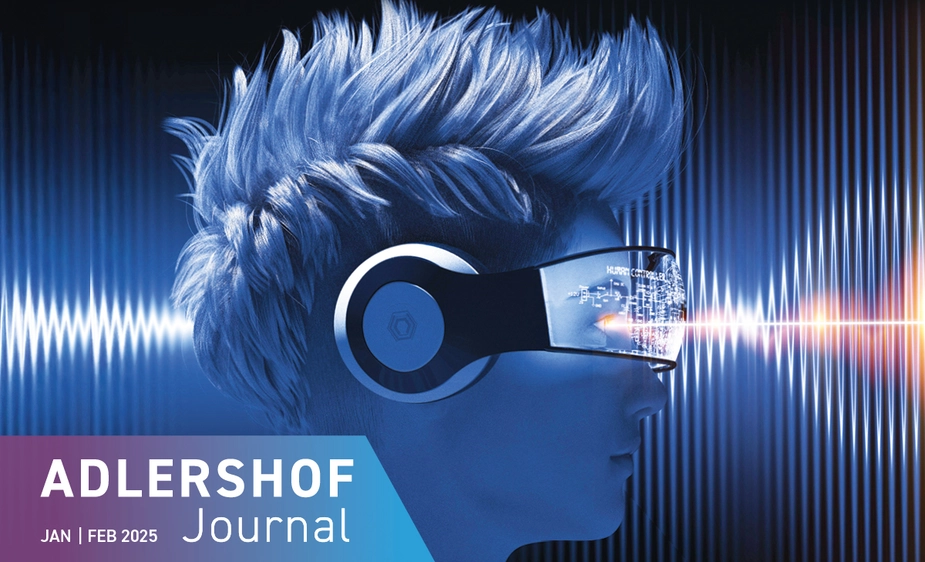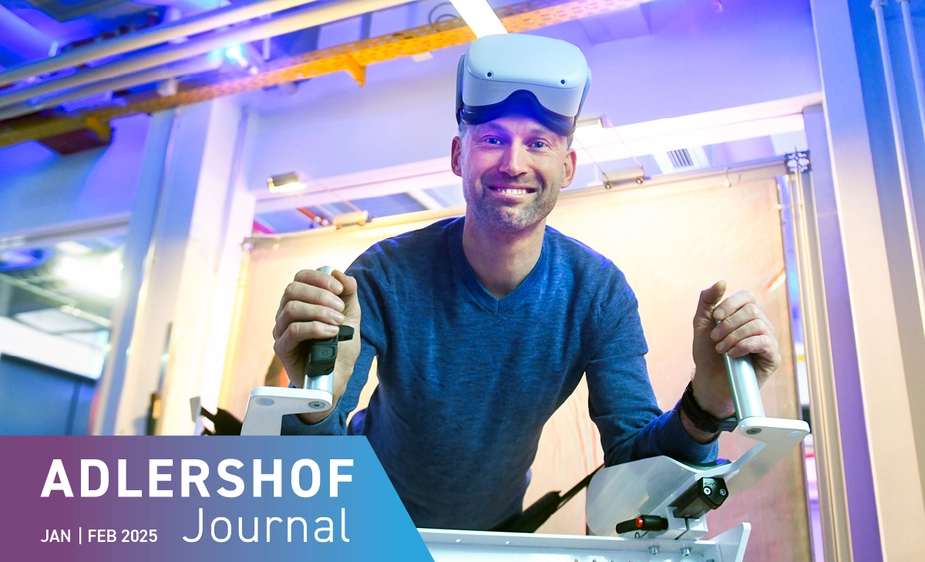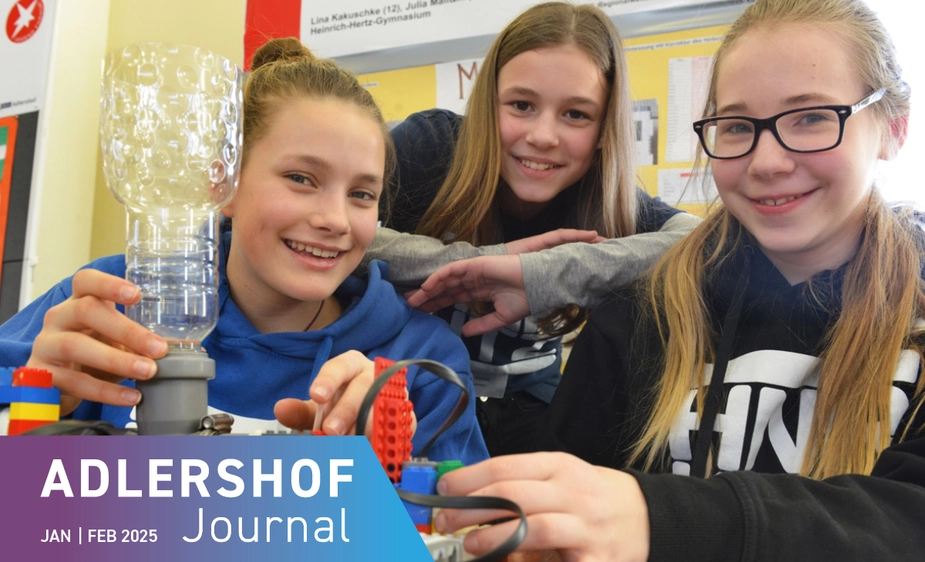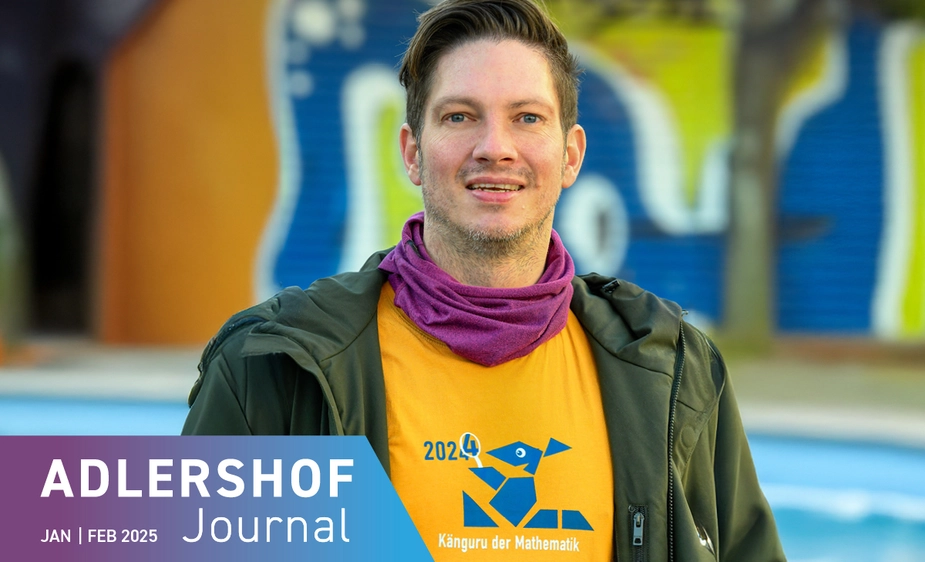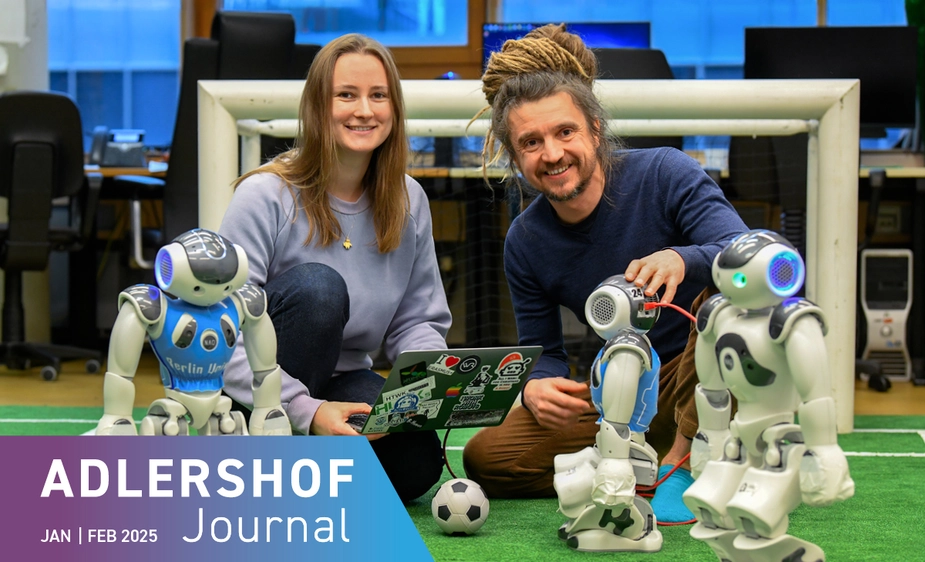Supercharging talent
How the Technology Park in Adlershof supports the next generation of STEM professionals
According to a study, around one-fifth of young people aged ten to 16 have a ‘fear of mathematics.’ This applies equally to most STEM subjects. Why? And what can we do about it?
For Tobias Bohnhardt, these findings are not set in stone—and young people are by no means ‘lost.’ As the head of DLR_School_Lab Berlin (one of 16 student labs of the German Aerospace Centre) and a judge at the Berlin South regional competition of ‘Jugend forscht’, he observes: ‘Young people are generally interested in STEM subjects. Children are naturally curious and fascinated by scientific phenomena,’ explains Bohnhardt. This enthusiasm was especially evident when they did experiments and have hands-on experiences.
However: ‘The shortage of skilled workers in the STEM field, both in academia and the professional sector, remains a significant problem.’ Consequently: Despite the general interest of young people, it was evidently difficult to sustain this enthusiasm, says Bohnhardt. ‘Students often lose confidence in their abilities or, in some cases, their interest altogether.’ That, then, is how the aforementioned survey results come about. According to Bohnhardt, it is therefore imperative to nurture the curiosity once sparked and to use targeted initiatives like DLR_School_Lab or ‘Jugend forscht’ to demonstrate how fascinating and relevant (to everyday life) STEM subjects are. ‘Through extracurricular STEM initiatives like these, talent is not only recognised but also supported and promoted in the long term.’
One example of this success is a former intern of DLR_School_Lab, who went on to study physics after leaving high school—in Cambridge. ‘She went on working for MIT,’ says Bohnhardt. ‘Jugend forscht’, too, has produced countless examples of alumni pursuing a career in the STEM sector. ‘Our regional competitions make sure that high school students from all over Germany have the chance to take part,’ says Bohnhardt with emphasis. ‘This makes sure not only the top performers are promoted, but creative, interdisciplinary research as well. And that motivates young people to further develop their ideas and projects and gain recognition in the scientific community.’
Alexander Unger has noticed little ‘fear of mathematics’ either. He is responsible for the ‘Känguru der Mathematik’ competition, which is German for ‘mathematics kangaroo’, organised by the Department of Mathematics at Humboldt-Universität zu Berlin (HU). Aimed at students between year three and 13, this international competition is held in over 100 countries and aims to ‘support mathematical education in schools and foster a love for and deeper engagement with mathematics.’ How is this achieved—and how successful is it? ‘First and foremost, we achieve this through the subject matter of the competition—of course, the problems, but also the prizes,’ says Unger. ‘The problems often differ significantly from the usual textbook ones. They are meant to entertain and be puzzled over, are designed with attention to detail and humour. ‘They often tell stories based on everyday situations that connect to the problem. Unger goes on: ‘What’s important to us is to have a broad thematic variety, as diverse as mathematics itself, with key skills needed in everyday life taking centre stage.’ They include logical reasoning, imagination, estimation, creativity, and the ability to recognise connections.
Their goal: ‘We want to challenge the more advanced students and make sure to intrigue those who may be perceived as weaker or who haven’t yet developed an interest in mathematics,’ he stresses. It would be desirable if more young people would begin to study mathematics, says Unger. This is not the case, however, and there is a real shortage of teachers: ‘We need to keep working on this, spark interest early on, and motivate people.’
While currently preparing for the RoboCup World Championship in July 2025 in Brazil, the Berlin United Team led by Heinrich Mellmann from the Department of Computer Science at HU is also making a tangible contribution to boosting STEM enthusiasm. Mellmann, who has been working in this field for a good 20 years, trains his team of young computer scientists to program kicking robots. One of those involved is Anastasia Prisacaru, who describes the appeal as follows: ‘RoboCup gives us the opportunity to apply the theoretical knowledge we gain in our studies to practical situations. Our goal is to program humanoid robots that can play football autonomously.’
What’s special about it, too, she says, is the diversity of tasks: They range from high-level development, including team communication, strategy development, and image processing, to low-level tasks like optimisation of movements and shot mechanisms. ‘Moreover, we develop tools for data analysis and debugging, which gives us comprehensive insight into modern software development,’ explains Prisacaru. To her, this work is more ‘like a fascinating journey of discovery.’
Computer science offers a unique blend of logical thinking and creativity. ‘What I find particularly fascinating is the continuous evolution of the field, with constant new technologies and innovations,’ she says. ‘It’s inspiring to play an active part in this digital transformation and contribute to technological development through my own projects.’ Let no one say computer science is dusty! Only for nerds? Out of touch? Hardly.
Prisacaru is aware of the stereotypes about her profession. That computer science is somehow monotonous. Her response: ‘In reality, the workday is very dynamic, characterised by teamwork and interdisciplinary, creative problem-solving. Another stereotype is that it’s a subject for introverts.’ An outdated perception that was probably wrong from the start: ‘In the modern IT industry, communication and other soft skills are paramount,’ says Prisacaru.
How can somebody realise their potential in this industry? Prisacaru recommends: ‘Follow your personal interests and strengths, rather than being restricted by traditional career paths.’ Computer science offers countless opportunities for specialisation—from game development to cybersecurity and AI research. ‘Stay curious and eager to learn, because lifelong learning is the key to success in this dynamic field.’
Chris Löwer for Adlershof Journal
